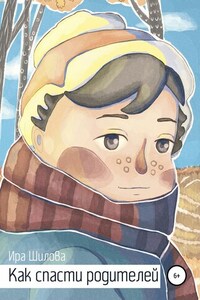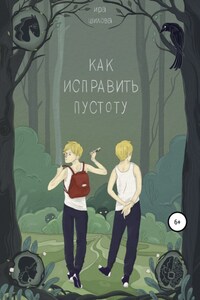There was once a girl, named Lelya. Lelya was neither charming nor ugly-looking, neither stubborn nor weak-willed. She lived quietly among three clamorous sisters and three strong brothers, with a mother but without a dad, in an oval hut in the middle of a forest.
Lelya rarely spoke. While her sisters were learning the Song, she gazed silently at their dark-red lips. When her brothers ran into the thicket to catch hares, Lelya waited for the boys near the hut motionless. After all, she enjoyed not only silence but also restraint and peace. When the mother put on her a fox coat and drove the children out of the hut, the girl sat under the window to listen, to comprehend, to ponder her own thoughts in peace; because Lelya treasured wisdom most of all. And this wisdom whispered to the girl that her family was fierce and changeable, like the autumn weather.
Lelya's family did not clean the hut. The family did not heat the stove. The family did not keep a broom, a vat, or an oven fork in the household. However, the family's dwelling was always neat and warm, and dishes from the womb of the forest appeared on the table every sunset, as if invisible servants carried the dust, laid beds, fed the hidden fire, and slaughtered wild boars and grouse.
Lelya's family never went to see people. Yet, once in awhile, when people came to see them, Lelya saw disorder in those visits: no one had invited the human guests to the hut, the humans' gifts were rejected, and only the mother spoke calmly to those who came, as if they were not the visitors but the danger.
And the most curious thing in life for Lelya was the Night Talk. While the stars wandered through eternity, the family hurriedly whispered with the nature: the mother with trees, the brothers with winds, the sisters with owls, and Lelya with a fox. And it seemed to the girl to be strange and sensible at the same time. Just as the rich gilding on the leaves after the summer looked natural, so the family's way of life seemed common to Lelya. But the girl's soul, different from the souls of her relatives, was worried and expected a payback for idle life. After lavish autumn harvests a punishing winter invariably followed.
One day, the mother sent her sons to run with deer between the woods, sat her daughters on aspen stumps away from the hut, and admonished the girls to learn a Song. Three girls obediently closed their eyes, held hands, and sang a subtle melody. Three girls, three voices, the single Song for the Living Kingdom, for the Hidden Kingdom, and for the Kingdom of the Dead. But this momentary and shaky musical balance did not interest Lelya. The girl relished looking at the strangers beside the hut. The mother hid the children behind the study from them, and Lelya wondered why.










